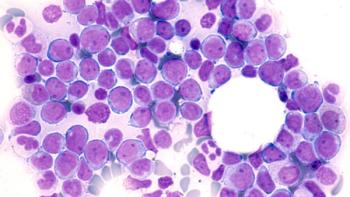
- Pharmaceutical Technology-12-02-2013
- Volume 37
- Issue 12
Industry Optimism Outweighs Personal Job Security
Pharmaceutical Technology's 2013 Employment Survey reveals some optimism for the industry's future performance, but ongoing concerns about individual job prospects.
Amid the environment of a gradual economic recovery and continued consolidation of bio/pharmaceutical companies, scientists, technicians, and professionals involved in drug development expressed a mix of muted optimism and stagnant employment options. Readers of Pharmaceutical Technology shared their perspectives on the current employment situation in the magazine’s annual employment survey. The respondents represent a cross section of small- and large-molecule drug development functions from facilities in North America, Europe, and other locations. Approximately 60% of the respondents held advanced degrees, divided evenly between Master’s and doctorate degrees.
In 2013, more than half of the respondents said they were involved in a merger, acquisition, downsizing, or restructuring. This represents a significant jump from 2012, when 36.1% of survey participants experienced similar company changes. This activity could be a reason for the slight pullback in confidence in job security.
In the past two years, have you been through a merger, acquisition, down-sizing, or restructuring?
2012
36.1%
63.9%
2013
51.3%
48.7%
Since 2010, confidence in job security has trended upward. Four years ago, 53% of the respondents said they were less secure in their position versus the previous year. In 2013, only 37.4% said they were less secure compared to 2012. However, more respondents felt less secure in their positions in 2013 compared to 2012, illustrating a slight drop in job security confidence.
Nearly two-thirds of those surveyed (63.3%) reported a salary increase in 2013. While 43% said they were paid fairly, almost 35% said their compensation was at the lower range of market value. Nearly 20% said they were paid below market value. More than half reported an increase in the cost of health insurance.
Does your salary reflect a change over last year’s salary?
Increase
63.3%
Decrease
6%
No change
30.7%
Rate your satisfaction with your current salary (for your level of expertise and responsibility).
I am paid excessively
2.5%
I am paid fairly
43%
I am paid within market value, but at the low end of the range
34.9%
I am paid below market value
19.7%
However, respondents cited other factors as important to job satisfaction with challenging projects, intellectual stimulation, or good work/life balance as “the main reason I come to work.”
Work/life balance and salary were the two most important reasons respondents would change jobs, followed by job security and professional advancement. More than half were confident that they could find a job comparable to the one they currently hold, although 42% said it would take some time to locate a suitable position.
While respondents had some reservations about prospects for their own positions, they were more optimistic about business prospects for their organizations and the overall bio/pharmaceutical industry. Nearly 60% predicted business prospects for their company will improve in 2014, a jump of 11 percentage points over 2012. The percent of respondents who thought business would decline dropped from 18.1% in 2012 to 13.1% in 2013.
When considering the outlook for the overall bio/pharmaceutical market in the short- and long-term, 54.3% of the respondents predicted that business will improve, versus less than 6% who expect a decline in business. Interestingly, more survey participants expect business to improve overseas but not domestically (16.5%), versus those that expect improved conditions domestically, but not overseas (2.9%).
In evaluating the capabilities of new hires in the bio/pharmaceutical industry, 79% of those surveyed said the new employees were adequately trained, but not exceptional. More than 13% said the new hires were poorly trained.
Reference
1. 2013 Pharmaceutical Technology Employment Survey.
Note: Due to rounding, some percentages may not add up to 100%. Some questions allowed multiple answers.
Articles in this issue
about 12 years ago
Rail-Mounted Fluid Bed Dryers Allow Cleaning Accessabout 12 years ago
Biotechnology Innovation and Growth in Israelabout 12 years ago
Drug Manufacturing Focus: Why India?about 12 years ago
Clinical Trials Head East to Asiaabout 12 years ago
Climate Change in Outsourcingabout 12 years ago
Deficiencies Found in API Inspectionsabout 12 years ago
Q&A with Brian Galliher, Cook Pharmicaabout 12 years ago
Inspiring the Next Generationabout 12 years ago
Establishing a Minimum Incubation Time for Biological IndicatorsNewsletter
Get the essential updates shaping the future of pharma manufacturing and compliance—subscribe today to Pharmaceutical Technology and never miss a breakthrough.




